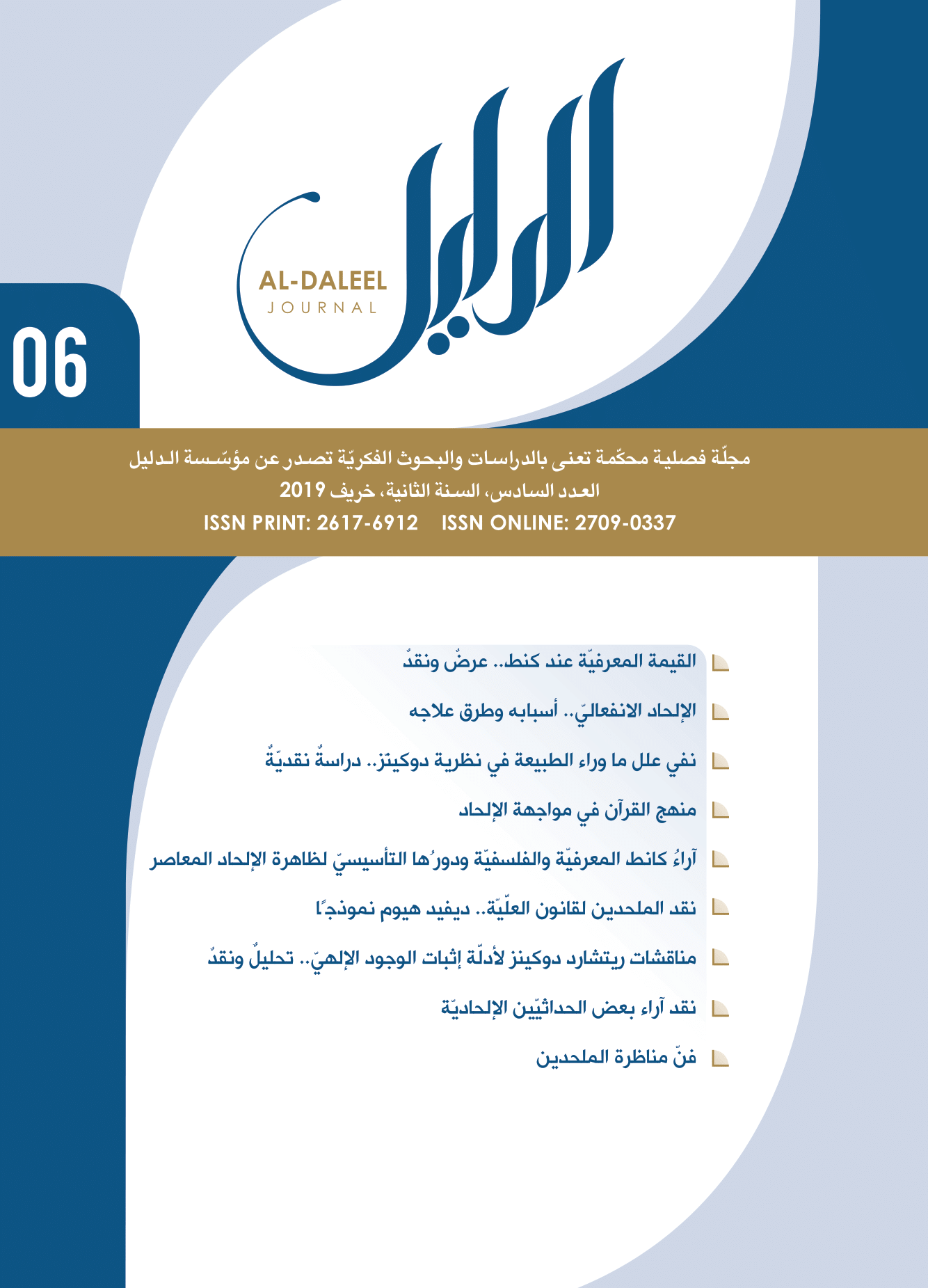Abstract
The main theme that occupied Kants mind was the value of knowledge, and by that we mean the rationale for characterizing a proposition with validity and universality in the sense of necessity. For this reason, Kant distinguished the analytical knowledge from synthetic knowledge, as he believes that the relationship between the subject and the predicate is either inclusive or not. In the former sense, the assent would be immediate and coercive, the statement is called analytical, and in the latter sense, the assent would need a mediator, the proposition being synthetic. The mediator, as he believes, is time and space. So, the knowledge to be universal and necessary needs to come under sheer concepts called categories. After that, the rationale for the division of propositions into analytical and synthetic is discussed, and it has been shown that Kant has been oblivious to the intrinsic relationship via essential predicate or essential accident. Similarly, the rationale for the validity of propositions due to the description of universality and necessity is discussed. At last, it has been stated that Kant has overlooked an important point in the logic, and that is the fact that the predicates in the demonstration must be essentials or essential accidents.
Keywords
analytical
Concept
Intuition
Kant
Knowledge
synthetic
Abstract
لعلّ أهمّ مبحثٍ شغل ذهن كنط طويلًا هو قيمة المعرفة(هذه المقالة مستلّةٌ من أطروحتي للدكتوراه الّتي حملت عنوان (دراسة مقارنة نقدية للإدراك الحسّيّ عند ابن سينا وكنط)، والمشرف على كتابة الرسالة والمقال هو الأستاذ الدكتور علي رضاپور)، ونعني بها مبرّر اتّصاف القضيّة بالصدق والكلّيّة على نحو الضرورة(سياق كلمات كنط أنّ المراد من الكلّيّة هي الشموليّة، أي نفس الكلّيّة بمعناها المعروف عند المناطقة السابقين، وهي المفهوم الّذي لا يمتنع صدقه على كثيرين ولو بالفرض، وكذٰلك معنى الضرورة، فإنّه يعني بها أنّ الحكم لازمٌ، وخلافه يؤدّي إلى التناقض)؛ ومن أجل ذٰلك فرّق كنط بين المعرفة التحليليّة والتأليفيّة؛ لأنّ العلاقة بين الموضوع والمحمول ـ حسب ما يرى كنط ـ إمّا تضمنيّةٌ فيكون التصديق بدهيًّا اضطراريًّا، وهي المسمّاة ـ عنده ـ بالتحليليّة، وإمّا ليست تضمنيّةً فيحتاج التصديق إلى واسطةٍ، وهي المسمّاة ـ عنده ـ بالتأليفيّة، والواسطة للتصديق ـ من وجهة نظره ـ هي الزمان والمكان، ولكي تتّصف المعرفة بالكلّيّة والضرورة احتاجت أن تندرج تحت مفاهيم محضةٍ أَطلق عليها المقولات. وقد تمّت مناقشة مبرّر تقسيم القضايا إلى تحليليّةٍ وتأليفيّةٍ، ومبرّر صدق القضايا لاتّصافها بالكلّيّة والضرورة، وبيان أنّ كنط غفل أو تغافل عن أمرٍ مهمٍّ في المنطق، وهو أنّ المحمولات في البرهان لا بدّ أن تكون ذاتيّةً، أو أعراضًا ذاتيّةً.
Keywords
التأليفيّة
التحليليّة
الحدس
المعرفة
المفهوم
كنط
